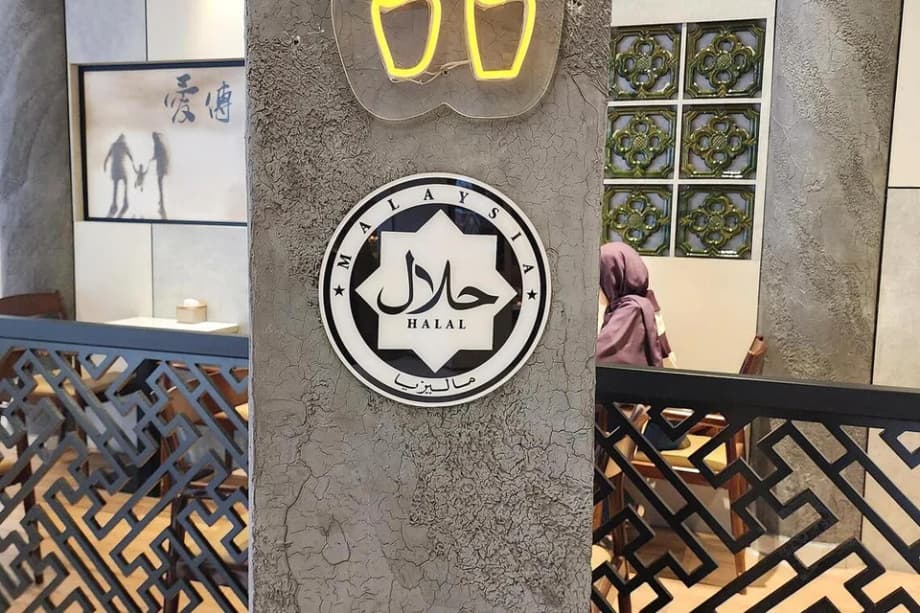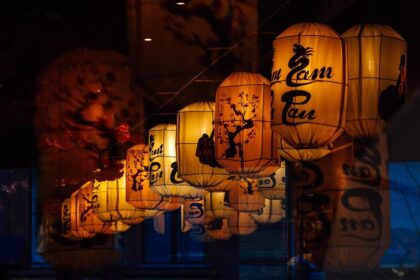A convenience sandwich that sparked a national argument
A pre packed ham and cheese sandwich sold at a KK Mart concept store on the Universiti Malaya campus triggered a national outcry in January. Student shoppers spotted a halal logo on the packaging and questioned its authenticity on social media. Within hours the issue jumped from a campus noticeboard to national politics, laying bare how sensitive halal marks have become in a Muslim majority country.
- A convenience sandwich that sparked a national argument
- What halal certification actually covers
- Unofficial labels and the Muslim Choice debate
- Why certification matters to diners and businesses
- Regulators tighten checks after past scandals
- Politics, social media, and the risk of boycotts
- How to verify halal status and avoid confusion
- What to Know
Malaysia’s Department of Islamic Development, known as Jakim, confirmed that neither the sandwich nor its manufacturer held the Malaysian halal certificate, Sijil Pengesahan Halal Malaysia (SPHM). Officials said use of the halal logo without certification is an offense under the Trade Descriptions Act 2011 and the Trade Descriptions Certification and Marking of Halal Order 2011. Police reports were lodged, Universiti Malaya shut two outlets for checks, and the Domestic Trade and Cost of Living Ministry opened an investigation.
The controversy also highlighted a recurring language trap. In everyday English, ham often refers to pork. Food makers in Malaysia sometimes use chicken ham or turkey ham to describe cured, sliced poultry. Rules require clear labeling so that terms associated with pork are qualified, and so that the overall product is certified. Clarity matters in a market that relies on trust.
Jakim’s director general, Datuk Sirajuddin Suhaimee, reminded brands that halal is more than a single ingredient.
“No product or service can be described as halal or carry a halal logo without verification and certification by the department,” he said, adding that certification covers handling, preparation and processing across the full chain.
KK Mart said the sandwiches contained chicken ham and blamed a supplier for the packaging. The chain suspended dealings with the vendor, issued a legal demand, and said it would cooperate with investigators. Public reaction was intense, with boycott calls and angry posts directed at both the retailer and enforcement agencies. It was a stark lesson on how a small sticker can carry very large consequences.
What halal certification actually covers
Jakim’s SPHM is a system wide assurance that a product or premise meets Islamic dietary law. Beyond banning pork and alcohol, certification examines sourcing, storage, kitchen design, equipment, sanitation, staff practices and logistics. It prevents cross contamination, verifies slaughtering steps where relevant, and demands traceability from raw materials to final sale.
In practice, a business applies online, lists every ingredient and supplier, submits product formulations, and appoints a Muslim halal supervisor to oversee compliance. The official fee is modest, from RM100 to RM10,000 a year depending on size and category. The official processing time is 30 days, though gathering supplier documents can take longer because each item must also be halal certified where required.
From ingredient lists to kitchens and supply chains
Auditors check receiving areas, cold rooms, cooking lines and warehousing. They look for dedicated tools for halal items, separate storage, cleaning records and pest control. Labels and recipes are cross checked against supplier certificates. Staff training is reviewed and spot checks can be carried out without warning.
Officials have also signaled interest in deeper traceability, including better training for officers and technology that links certificates to QR codes and databases. The goal is to make public verification fast and to reduce room for misuse.
Unofficial labels and the Muslim Choice debate
Many eateries, especially small non Muslim owned outlets, signal they are safe for Muslim diners by posting claims such as no pork, no lard, and no alcohol. These signs can reflect genuine effort to respect customers. They are not a substitute for certification. They also do not cover hidden risks like flavorings, emulsifiers or shared fryers.
In 2024, a group called Muslim Friendly Watch tried to formalize these signals with a Muslim Choice label for premises that were pork free and alcohol free. Jakim publicly said it had never recognized the label and warned that parallel marks could cause confusion and fall foul of trade law. The group disbanded after pushback.
At times, activists and politicians have floated color coded logos to separate Muslim owned and non Muslim owned businesses. Regulators dismissed those ideas as unnecessary. Recognized halal systems around the world evaluate ingredients and processes. Ownership is not one of the criteria.
Malaysia has also tightened guidance on marketing terms. Descriptions such as pork free or Muslim friendly are frequently used, but the authorities have said only certified premises should rely on terms that imply halal assurance. Misleading claims can attract penalties.
Why certification matters to diners and businesses
Surveys reflect the weight Muslim consumers give to assurance. In 2024, 69 percent of respondents said Jakim halal certification and the presence of Muslim staff were their main filters when buying food. Certification is a proxy for safety and predictability in a crowded marketplace.
For restaurants, certification is a bridge to the mass market. In mixed neighborhoods, a Chinese cuisine outlet that is uncertified can lose a large share of potential customers even if it does not serve pork or alcohol. For chains and established brands, the halal logo signals consistency to both Muslim and non Muslim patrons. It also simplifies procurement by forcing suppliers to meet the same standard.
The stakes extend to exports. Malaysia positions itself as a hub for halal goods and services. Food and beverages are the largest piece of the halal export portfolio, which reached RM59.46 billion in 2022. Confidence at home sustains credibility abroad.
The cost of getting certified
The official fee is not the barrier. The real expense lies in compliance. A small to medium outlet can spend RM25,000 or more on ingredient changes, dedicated equipment, staff training and consultants to prepare documents. Some businesses must replace sauces, shorten ingredient lists, or switch suppliers to meet the rules. Others upgrade kitchens to separate lines and storage.
Can small eateries cope?
Many small outlets choose a middle path. They remove pork and alcohol to attract a wider crowd while they work toward certification or wait until they can afford it. The application process has become clearer in recent years with step by step guidance and better online tools. The Cabinet also decided in 2024 to keep certification voluntary, rejecting calls to force pork free and alcohol free premises to apply. That preserved consumer choice, but it also puts pressure on businesses to market themselves carefully.
Regulators tighten checks after past scandals
Public sensitivity did not come from nowhere. A meat cartel scandal exposed in late 2020 revealed smuggled and mislabelled imports that bypassed approved abattoirs and slaughter methods. Investigators seized meat repackaged as halal beef, including non compliant species. Arrests followed and officials reviewed import procedures. The episode shook confidence and dented export targets.
Regional incidents have kept the pressure on. In April 2025, Jakim ordered a recall of Indonesian snacks that tested positive for porcine ingredients. Importers were warned to pull items from shelves and to notify the department.
Sirajuddin Suhaimee said consumer protection is central to enforcement.
“Protecting the rights of Muslim consumers and maintaining the integrity of our halal certification system are top priorities,” the director general said.
Enforcement now leans on clearer rules and digital checks. Jakim urges the public to verify brands and premises through official channels before trusting packaging. Stricter inspection of abattoirs abroad and online cross checks with foreign authorities have also been introduced in the meat sector.
Politics, social media, and the risk of boycotts
Halal issues travel fast on social platforms. The sandwich case produced a cascade of videos, calls for boycotts and demands for police action. Protests are rare, yet a brand can lose goodwill in hours. The chain at the center of the storm said it had stocked the item in only a handful of concept stores, but sentiment went south across the country.
UMNO Youth chief Muhammad Akmal Saleh was among the first politicians to wade in. He accused the retailer of belittling Islam and demanded answers about the halal mark.
“Since when is ham considered halal, and how did this product obtain halal certification?” he said.
Other leaders urged restraint and professionalism. Malaysian Chinese Association vice president Datuk Seri Dr Wee Jeck Seng said food disputes should be handled by competent agencies, not politicized online.
“We are confident in the capabilities of these institutions and believe they are well equipped to resolve such issues without politicians meddling or amplifying the topic excessively on social media,” he said.
Away from the cameras, the policy position has been steady. Deputy Prime Minister Ahmad Zahid Hamidi said last year that halal certification would remain optional for eateries, maintaining the status quo that has been in place for decades.
How to verify halal status and avoid confusion
Consumers and businesses share responsibility for keeping trust in the system. Simple checks can prevent mistakes from spiraling into crises.
- Verify certificates on the Malaysia Halal Verification portal. The official site lists certified products, premises and companies. Use the search function on the portal at halal.gov.my or the official mobile app.
- Check packaging details. A genuine SPHM logo should be paired with a company name and a certificate number that matches the database. If the logo looks generic or refers to a different firm, do not rely on it.
- Read ingredient panels carefully. Terms like ham should be qualified as chicken ham or turkey ham when poultry is used. When in doubt, look up the brand on the portal.
- At eateries, look for the premise certificate. Certified restaurants display a valid certificate and often a QR code for instant checks.
- Report suspected misuse. If a label seems false, notify the Domestic Trade and Cost of Living Ministry or Jakim. Take photos and share the batch number to support enforcement.
For operators, the same clarity applies on the supply side.
- Map the supply chain and replace any ingredient that lacks a halal certificate where needed. Maintain up to date supplier letters and certificates.
- Appoint a Muslim halal supervisor and train staff. Keep logs of deliveries, cleaning routines and corrective actions.
- Design kitchens to prevent cross contamination. Separate storage and utensils for halal items and keep records of pest control and sanitation.
- Do not use terms that imply halal assurance if you are not certified. Claims like Muslim friendly or pork free are not substitutes for SPHM.
- If describing items as chicken ham or turkey ham, ensure labels are clear and consistent with the standard, and avoid words that can mislead.
What to Know
- A ham and cheese sandwich bearing a halal logo at a university convenience store triggered probes after Jakim confirmed there was no Malaysian halal certification.
- Jakim says halal status covers the entire chain. Using one halal certified ingredient does not make the whole product halal.
- Misuse of halal logos is an offense under the Trade Descriptions Act 2011 and the Halal Order 2011.
- The Cabinet decided in 2024 that halal certification remains voluntary for pork free and alcohol free eateries.
- Unofficial labels like pork free or Muslim friendly are common, but they are not replacements for SPHM and can mislead if used loosely.
- Consumer trust is high in official marks. A 2024 survey found 69 percent of buyers prioritize SPHM and Muslim staff presence.
- Compliance costs can reach RM25,000 or more for small and medium outlets, even though official fees are low.
- Past cases, including the 2020 fake meat scandal and a 2025 recall of Indonesian snacks with porcine, pushed regulators to tighten checks and promote digital verification.
- Consumers can confirm status on the official portal, while businesses are urged to upgrade compliance and avoid risky marketing claims.












